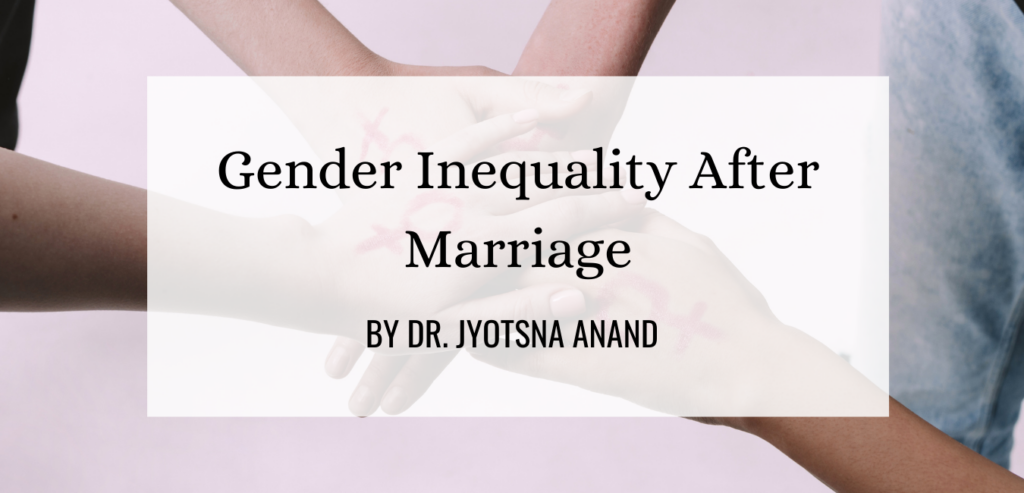WOMEN BREADWINNERS STILL DO MOST OF THE HOME CHORES
Daisy, a corporate professional, just came home after a long hectic day at the office, attending meetings, clients, phone calls but not to her surprise as usual found the home completely messed up. As usual, here begins the never-ending saga of Home chores for her. This story of working for ‘second shift’ is not only of Daisy but of around 45% of female breadwinners (According to a study conducted by Life insurance broker Life search ) who do the majority of household tasks. Despite working full – time at the office and earning equally or sometimes more than their partner, things are not changing concerning, unpaid domestic work chores, thus it is high time we need to raise awareness for the same.
INEQUALITY AT HOME
Every time we talk about gender equality we focus only upon equality at the workplace, education, promotions, and equal opportunities at the office, but no one talks about inequality women are often facing in their own homes regularly. The burden of the bulk of domestic responsibilities is still on women widespread. Various studies conducted show a large gender gap. Women are doing and are expected to do more housework even when they too are breadwinning for family equally and working full – time.
REDUCING INEQUALITY IN HOUSEWORK TOO?
INEQUALITY AND RELATIONSHIP ISSUES
Priya, a working mom is always angry and anxious due to the overloading of office and household responsibilities on her shoulders solely. Due to the unfair division of responsibilities of home chores and children her relationship with her husband is ultimately leading to conflicts. According to various research, there is an increasing trend of dual-income households these days, but the unfair division of labor and inequality of chores at home is impacting the happiness of the entire family.
Women coming home from the office and overloaded with home chores again without any help from the male partner is creating conflict among couples and deteriorating their relationship quality and ultimately marital dissatisfaction with stress.
A study conducted by the SAGE journal of sociology says one spouse is over – benefitted and one is under – benefitted as one does almost all or most of the household work despite earning equally. Women who are most of the time an under benefitted one suffer from emotional distress, tiredness, irritability, and anger affecting not only their physical well- being but mental well being too.
FINAL THOUGHTS
On the final note, I would like to conclude the perception of unfairness hurt the couples. When the division of labor and inequality increases dissatisfaction persists ultimately marriages are likely to suffer. Feeling of unfairness in housework can be corrosive to relationship and marriage both.
When couples perceived division of housework as fair, greater satisfaction in marriage persists. Nothing could be changed overnight, the ultimate solution is the couple should sit together and talk about the fair share of house responsibilities.

